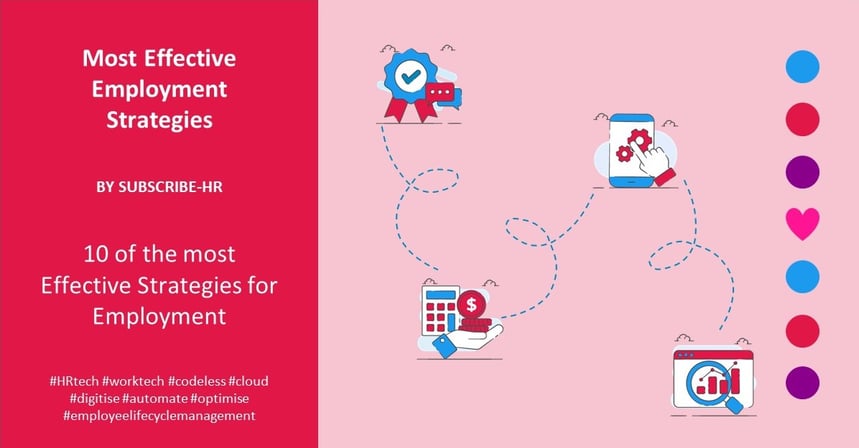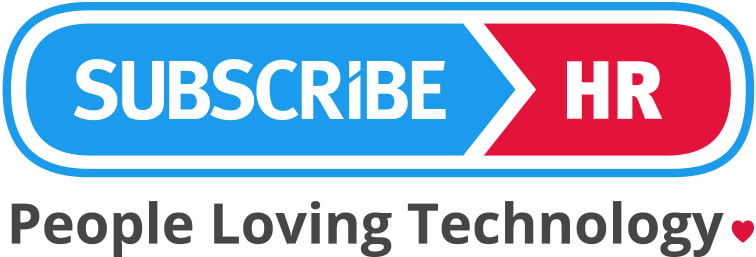In the last few years, a significant transformation has swept through workplaces worldwide, prompting millions of employees across various sectors to seek alternative career paths.
This widespread employee migration, often referred to as the "Great Resignation," has reshaped the employment landscape, giving employees greater leverage in the job market. Social media platforms, such as TikTok, have even coined phrases like "quiet quitting" and "act your wage".
As employees assess what truly matters to them in their careers, employers are faced with the challenge of reevaluating their appeal as workplaces. If your business is grappling with the potential loss of top talent or has already experienced the consequences of the talent shift, it's imperative to explore effective employee retention strategies. 🙌
In this blog post, we will delve into 10 effective strategies to enhance employee job satisfaction and strengthen your ability to retain your most valuable team members. Let’s dive right in.

What is Employee Retention and Why Does It Matter?
Employee retention is a fundamental organisational objective – its aim is to preserve a workforce that is both productive and brimming with talent.
Other objectives are mitigating turnover by cultivating a workplace environment that radiates positivity, fosters engagement, demonstrates gratitude towards employees, provides competitive compensation and benefits, and encourages the delicate equilibrium between work and life.
Employee retention strategies encompass a spectrum of practices that organisations can embrace to ensure their staff remains intact. The overarching objective is unequivocal: to curtail employee turnover, thereby limiting the number of individuals departing from the organisation within a given timeframe.
So what are some strategies that organisations can deploy to help their retention rates? ⬇️

10 Effective Employee Retention Strategies for 2023
Providing competitive salaries
When it comes to making your employees feel valued, the top priority should be offering a fair wage for their hard work. Proper compensation is often more crucial than anything else on this list.
Employees should not only be paid fairly for their time and effort but also be able to afford the cost of living in their area. Their wages should be adjusted to keep up with rising prices due to inflation, and they should be rewarded as they gain more experience and take on more responsibilities.
Employers should continuously assess and update salary packages to remain competitive. Even if your company can't currently raise salaries, explore alternative forms of compensation, like bonuses. 💵
Nailing your employee onboarding experience
It's crucial to ensure that every new hire begins their journey with a strong foundation for success. 👍
Support your new employees by providing them with a comprehensive understanding of their roles and responsibilities. Equip them with the autonomy and resources necessary to fulfil their tasks and cultivate an inclusive environment where they feel welcomed.
Your onboarding process should do more than just introduce them to their role; it should also immerse them in the company culture and show them how they can actively participate and excel within it.
👉 Introduce fresh hires to their colleagues and pair them with a mentor who can offer guidance and address their queries. Additionally, it's imperative to ensure that remote employees receive the same level of onboarding attention and support.
Enabling flexible work arrangements
Talking of remote employees, flexible work arrangements are increasingly becoming the norm. That’s why employers should be prepared to support employees’ flexible work expectations and enable remote/hybrid work.
Because when employees are freed from the daily commute, the stress of childcare logistics, and the drain of lengthy meetings and scheduling conflicts, their productivity increases and their overall happiness soars. 📈
Not offering this flexibility might even lead to employee resignations. Considering this, it's wise to proactively explore alternatives if permanent remote work isn't feasible for your organisation.
Could you consider options like a compressed workweek, flexible hours, or a partial telecommuting arrangement? Any of these choices can help alleviate stress for your team members and ultimately enhance employee retention.

Learning and development avenues
It's no surprise that a lack of investment in employee development correlates with higher staff turnover.
Empowering your employees with ongoing training, dedicated time, and resources for further education within their respective fields significantly enhances their job satisfaction and likelihood to remain with your company.
Allocate time for them to attend virtual conferences, offer tuition reimbursement, or support continuing education opportunities.
Fostering a culture of education, outlining clear career progression paths, and implementing coaching programs nurture creativity, engagement, and effectiveness within your workforce. Internal knowledge-sharing sessions, where employees teach each other new skills, can further enrich the learning environment.
Prioritise a positive work culture
Another vital strategy for retaining employees centres around creating an appealing work culture that resonates with your workforce. 🌈
These efforts may include recognising and rewarding employees not just for their achievements but also for their dedication, establishing a meaningful company mission, and involving employees in the collaborative decision-making process regarding the present and future direction of the organisation's mission.
To develop a standout culture, it's essential to reward individuals who consistently embody your company's core values. These values should hold genuine significance for every employee and be communicated in a manner that allows everyone to internalise and comprehend them.

Work on employee engagement
One of the most pivotal strategies for retaining employees is nurturing their engagement within the organisation. Disengaged employees can end up suffering from lower morale, reduced productivity, and an overall negative impact on your company's performance. It is imperative to create an environment where employees feel heard and understand that their opinions hold significance.
Consider utilising an engagement platform designed to ask the right questions, allowing you to uncover employees' genuine sentiments regarding their roles, teams, and managers.
Instead of lengthy, infrequent surveys that lack actionable insights, opt for pulse surveys — a series of concise questions sent at regular intervals to gauge employee engagement in real-time.
Other employee engagement strategies include:
- Foster open and transparent communication channels.
- Encourage regular feedback and listen to employees' concerns.
- Recognise and reward employees for their efforts and achievements.
- Show genuine appreciation for their contributions.
- Ensure that employees understand how their work contributes to the organisation's goals.
- Align their tasks with their skills and interests whenever possible.
- Involve employees in decision-making processes that affect their work.
- Encourage collaboration and input on projects and initiatives.
- Organise team-building activities and social events.
- Facilitate opportunities for employees to build relationships with colleagues.
- Provide clear job descriptions and performance expectations.
- Set realistic goals and provide regular feedback on progress.
Focus on two-way communication
The shift towards hybrid and remote work arrangements has underscored the vital role of effective workplace communication.
It's essential that your employees, whether they are working on-site or remotely, feel comfortable approaching you with their ideas, questions, or concerns at any given time.
Additionally, maintaining regular proactive connections with each team member is crucial to understanding their workload and gauging their job satisfaction.
Conversely, it is equally vital to encourage employees to openly share their feedback, ideas, and concerns with their managers. Employees should be empowered to freely express their thoughts and experiences concerning their workload, job satisfaction, and related matters. This two-way communication is instrumental in maintaining a healthy and engaged workforce.
Offer employee wellness options
Caring for your employees' health encompasses more than offering flexible scheduling or remote work options. It also involves maintaining a clean and hygienic workplace, implementing robust health and safety protocols, and establishing stringent policies against employees coming to work when ill.
To further incentivise responsible behaviour, consider providing sick pay to encourage employees who must be on-site to stay home when unwell.
Additionally, offering quality health insurance with comprehensive coverage and diverse options sends a clear message that their health is deeply valued.
Some pioneering companies, like LinkedIn, have found success in addressing burnout by providing collective mental health time off. This synchronised week of respite allowed exhausted employees to step away without the fear of missing crucial emails, meetings, or project updates. It's a powerful way to acknowledge and alleviate mental health challenges within your workforce.
Modern performance management with continuous feedback
Continuous feedback is a huge part of modern performance management. The traditional annual performance review, once a staple of employee evaluation, is undergoing a transformation in the modern workplace. Many forward-thinking employers are shifting their focus towards more frequent and dynamic interactions with their team members.
In lieu of the annual performance review, consider engaging in more regular one-on-one meetings with your employees. These conversations provide a valuable opportunity to discuss both short-term and long-term professional goals. They create a platform for delivering constructive feedback and fostering a deeper understanding of your team members' aspirations.
During these check-ins, encourage your employees to envision their future within the company. While it's essential to avoid making promises you can't keep, these discussions offer an ideal setting to explore potential career advancement scenarios collaboratively. By setting realistic expectations and outlining a practical path toward their goals, you can empower your team members to take ownership of their career trajectories.

Help employees maintain work-life balance
The seismic impact of the pandemic has reshaped how employees perceive the value of work and life. A growing number of workers now highlight work-life balance as a primary factor influencing their job decisions. It's become the reason they contemplate new job opportunities or, in some cases, the reason they decline lucrative offers.
Achieving this equilibrium may manifest through various means, such as remote work options, flexible scheduling, or shorter workdays, as mentioned earlier. Simple yet impactful gestures like encouraging employees not to check emails or respond to work-related inquiries outside of their designated work hours can also contribute to this equilibrium.
The underlying principle is simple: respecting employees' time away from work is fundamental to nurturing a healthy and lasting working relationship.
Consider the message your approach to time management sends to your employees. Do they feel the expectation to be available around the clock? It's essential to recognize that a robust work-life balance is pivotal for job satisfaction.
Individuals want assurance that their managers acknowledge their lives extend beyond the workplace. This acknowledgement gains even more significance in the context of remote work, where boundaries between personal and professional life can blur.
Takeaway
In this comprehensive guide, we've explored ten effective strategies to bolster employee retention in 2023 and beyond. Here's a quick recap of the key takeaways ⬇️
- Fair compensation is the cornerstone of retaining employees. Regularly assess and adjust salaries to stay competitive.
- Ensure new hires start on the right foot by providing comprehensive onboarding that integrates them into company culture.
- Embrace remote and hybrid work options to enhance employee productivity and satisfaction.
- Invest in upskilling and continuous learning to empower employees and boost retention.
- Foster a culture that recognizes and rewards employees, champions a meaningful mission, and involves the workforce in decision-making.
- Prioritise engagement through open communication, feedback, recognition, and alignment of tasks with skills and interests.
- Create an environment where employees feel comfortable sharing ideas, questions, and concerns, promoting proactive communication.
- Prioritise health and safety, offer comprehensive health insurance, and consider innovative wellness initiatives to support employee well-being.
- Replace traditional annual reviews with regular one-on-one meetings to discuss goals, provide feedback, and chart career paths.
- Acknowledge the importance of work-life balance, respect boundaries, and encourage employees to prioritise their well-being.
Need more employee retention support? We can help! Reach out to us here at Subscribe-HR below 👇

